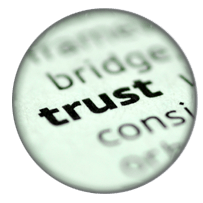How Offshore Trusts Work
Offshore asset protection trusts operate on a set of established mechanisms that provide the foundation for their function as tools for wealth management and asset protection. The operational process involves several critical steps, beginning with the creation of the trust and followed by the transfer of assets. Central to the operation of these trusts are the roles played by the settlor, the trustee, and the beneficiaries.
Creation of the Trust
The creation of an offshore asset protection trust initiates with the settlor's decision to place assets into the legal stewardship of a trustee, who will administer the trust according to the specified terms for the benefit of designated beneficiaries. The settlor is the individual or entity that establishes the trust and transfers assets into it. This process starts with the drafting of the trust deed, a legal document that sets out the rules and conditions under which the trust will operate. It outlines the powers and duties of the trustee, the rights of the beneficiaries, and the specific terms under which distributions may be made.
The trust deed must be executed properly to be valid, typically requiring the settlor's signature in the presence of witnesses. An essential aspect of the trust deed is the declaration of trust, wherein the settlor declares that the trustee holds the trust assets for the benefit of the beneficiaries. This document is vital as it can offer provisions that protect the assets from future creditors and legal judgments, subject to the jurisdiction's specific asset protection laws.
Transfer of Assets
Once the trust is established, the settlor transfers ownership of assets into the trust. This process requires the settlor to relinquish control over the assets to the trustee, who then assumes legal ownership. The transfer must be absolute, and not simply on paper, for the asset protection elements of the trust to function effectively. Assets can include, but are not limited to, cash, securities, real estate, intellectual property, and business interests.
The transfer should be executed with care to avoid any appearance of fraudulent conveyance—a transfer made with the intention of defrauding creditors. Trust jurisdictions have clear rules on what constitutes a fraudulent transfer, typically with a statute of limitations that defines a time frame within which a transfer cannot be challenged by creditors. If done properly, these transferred assets become protected from the settlor’s financial risks and legal liabilities.
Roles of Settlor, Trustee, and Beneficiaries
The settlor, trustee, and beneficiaries each have distinct roles in the operation of an offshore asset protection trust. The settlor not only creates the trust and funds it but also typically defines its terms and selects the beneficiaries. Once the trust is established and assets are transferred, the settlor's control over these assets is limited to the powers retained in the trust deed, if any.
The trustee is responsible for managing the trust assets in accordance with the terms of the trust deed and for the benefit of the beneficiaries. Trustees are generally required to act with a high degree of care and are bound by fiduciary duties. These duties compel the trustee to avoid conflicts of interest, act impartially among beneficiaries, and administer the trust prudently, respecting the legal framework of the jurisdiction.
Beneficiaries are the individuals or entities who are entitled to benefit from the assets held in the trust. They do not own the trust assets but have an interest in the trust according to the terms set out in the trust deed. Their rights may be fixed or discretionary, as determined by the settlor and outlined by the trust agreement. In some structures, beneficiaries may also include future generations, charitable causes, or even the settlor, in specific conditions.
Protection of Assets
The way in which these elements—creation, asset transfer, and roles—work together is what provides the asset protection qualities of an offshore trust. The trust’s structure, the legal separation of the settlor from the assets, and the jurisdiction’s protective legislation create a barrier against creditors' claims. Creditors would typically have to undertake legal action in the jurisdiction of the trust, which is often a costly and uncertain endeavor due to more stringent evidentiary requirements and the typically short statute of limitations.
In jurisdictions that are well-established for asset protection, local laws often include provisions that make it very difficult for foreign judgments to be recognized or enforced against trust assets. These laws, coupled with the trustee’s fiduciary duty to protect the trust assets, provide a robust defense against potential claims.
In practice, these trusts work as a sort of legal fortress, separating the assets from the reach of the settlor’s future potential creditors and any adverse legal judgments, as long as the trust is properly established and administered in compliance with the relevant laws and regulations. While the settlor must relinquish control over the assets, this is offset by the peace of mind that comes with a well-structured and legally sound asset protection scheme.
The Ins and Outs of Offshore Asset Protection
Privacy

Asset Protection From Lawsuits And Creditors

Potential Tax Advantages

Diversification Of Investments

Estate And Succession Planning
Selecting an offshore jurisdiction is a multifaceted process that should align with your personal and financial goals. It requires a clear understanding of the interplay between legal protections, confidentiality, tax implications, and economic stability.
It is advisable to work closely with legal and financial experts specialized in the intricacies of international trust law to navigate this complex landscape and make a well-informed decision that best serves your asset protection needs.
Once the jurisdiction is selected, the focus shifts to the setup process, which encompasses choosing a qualified trustee, drafting a comprehensive trust deed tailored to your specific needs, transferring assets securely, and ensuring that the trust is in compliance with both local and international regulations. Professional guidance is invaluable throughout this process to ensure the trust's legal and operational effectiveness.
Without A Customised Legal Strategy, You Put Yourself At Risk.











